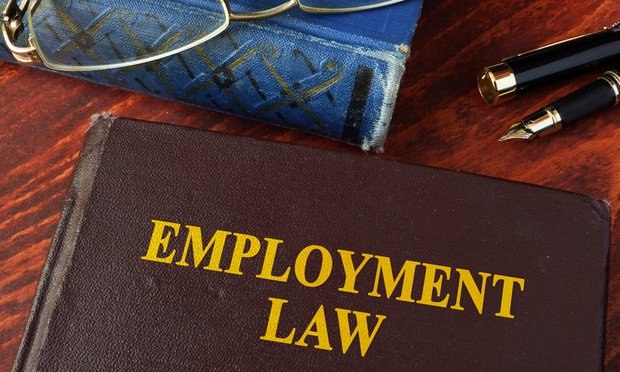Some new and amended laws, both in New Jersey and federal, went into effect on January 1, 2020. See below.
Minimum wage hike in New Jersey
The minimum-wage base for New Jersey workers increased from $10 to $11-an-hour on January 1st . It will then increase by $1-an-hour every January 1st until it reaches $15 an hour on Jan. 1, 2024.
For seasonal workers and employees at small businesses of five workers or less, the base minimum wage increased on January 1st from $8.85 an hour to $10.30 an hour.
Restaurant workers also saw an increase from $2.63 an hour to $3.13 an hour, plus tips. The cash wage plus tips must equal the minimum wage.
For agricultural workers, the base minimum wage increased from $8.85 an hour to $10.30 an hour on January 1st .
Currently, approximately 192,000 workers in New Jersey make between $10 and $10.99 per hour, according to U.S. Census Bureau Monthly Current Population Survey data, and will therefore directly benefit from the increase, lawmakers said.
New Jersey ban on asking for salary history
The new law, which went into effect on January 1st, prevents employers from asking about workers’ wage and salary histories.
The law is intended to combat gender inequality and promote equal pay for women in New Jersey.
The law, A1094, makes it an unlawful employment practice in New Jersey for any employer to screen a job applicant based on their salary history, including prior wages, salary, commission, benefits or any other current or previous compensation.
The law is designed to ensure that employees receive salaries that are commensurate with their skills, qualifications, and experience, lawmakers say.
Under the new law, any employer who attempts to ask or obtain an applicant’s salary history will be subject to a civil penalty of no more than $1,000 for a first offense, $5,000 for a second violation and $10,000 for any subsequent violations.
If an applicant voluntarily, without employer prompting or coercion, provides the employer with his or her salary history, the employer may consider the information when determining salary, benefits, and other compensation for the applicant and may verify the applicant’s salary history. However, an employer may not consider an applicant’s refusal to volunteer information in any employment decisions. An employer may ask an applicant to provide it with written authorization to confirm the applicant’s salary history after an offer of employment that includes an explanation of the overall compensation package has been made.
Changes to New Jersey’s family leave and temporary disability insurance programs
New Jersey legislation A3975 makes significant changes effective January 1, 2020 which will impact Temporary Disability Benefit (TDB) and Family Leave Insurance (FLI) coverage.
Both the Employee Contribution rate and taxable wages subject to contributions will increase significantly to absorb the cost of the expansion of benefits for 2020. While the employer taxable wage base will remain 28 times the NJ Statewide Average Weekly Wage (SAWW), the employee taxable wage base will increase to 107 times the NJ SAWW.
>For TDB, the employee contribution rate will increase to 0.26% of an employee’s wages, up to the maximum taxable wage base of $134,900; maximum annual contribution of $350.74 for 2020.
>For FLI, the employee contribution rate will increase to 0.16% of employees’ wages, up to maximum taxable wage base of $134,900; maximum annual contribution of $215.84 for 2020.
The Department of Labor (DOL) Final Overtime Rule
Overtime/exempt personnel—The Department of Labor’s (DOL) final overtime rule, effective January 1, 2020, increases the current minimum salary threshold for overtime exemption. The minimum salary level for overtime exemption is $684 a week ($35,568 a year). That’s up from the current law—in force since 2004—which requires employees to earn at least $455 a week ($23,660 a year). Workers making less than the threshold earn 1 ½ times their regular rate of pay for all hours over 40 during a workweek.

